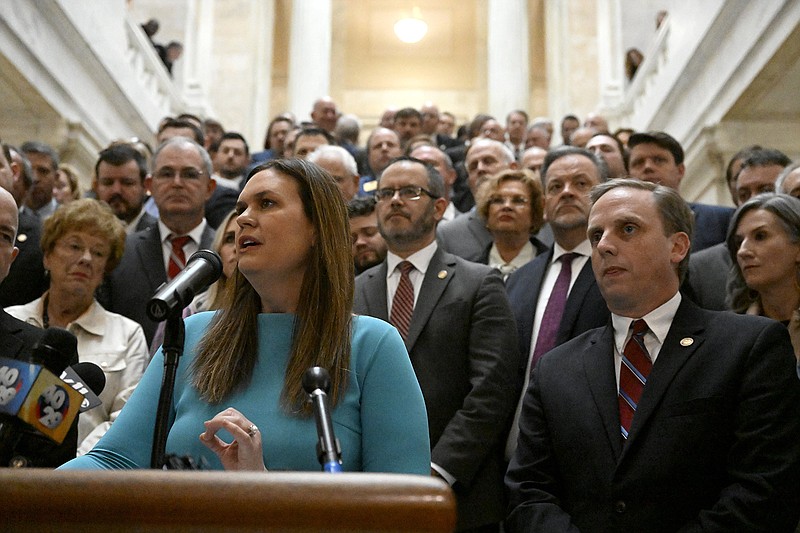L. E. A. R. N. S. Bill Fails to Learn from the Past
As of Feb. 22, at 9 a.m., the Senate Education Committee voted on pushing Arkansas Governor Sarah Huckabee Sanders’ new education-focused bill SB294 out of committee and into the House, where the body will vote on and decide its fate. Alternatively known as: L.E.A.R.N.S (literacy, empowerment, accountability, readiness, networking, and school safety) this bill promises to initiate educational reform in grades K-12 and reformat teacher contracts. While there are some benefits in SB294, for the most part, it implements new policies that could negatively impact Arkansas schools, teachers, and students. Most notably, Sanders’ bill will include the implementation of a voucher system known as the Arkansas Children’s Educational Freedom Account Program.
The voucher system that Sanders is proposing to implement with the passing of SB294 would allow children and their parents to more easily attend private schools or choose the option of homeschooling instead of attending public schools in their area. While this has the potential to help financially disadvantaged students attend other institutions that would better suit their styles of learning, the consequences of the system could be dire in the long run. Oftentimes, especially when it comes to homeschooling, a system that follows a less organized and standardized curriculum that could put students behind their peers attending public institutions. It is this potential gap in education that has the potential to worsen the already dire educational circumstances that Arkansas is currently facing. In addition, it runs the risk of funneling students out of districts along with the funds that these schools would need to remain operational. This would put more schools at risk of closings and consolidations, which would not only limit the options of public schools for students to attend, but would leave certain areas (especially in rural counties) without schools in general.
While the bill proposes a raise for starting teacher salaries from $36,000 to around $50,000, and a new system for bonuses, they are both merit-based. This caveat makes it much easier for schools and districts to fire teachers for what they deem to be “bad performance.” In addition to the bills repealing of the Teacher Fair Dismissal Act, schools can have less legitimate reasons to fire teachers, and teachers have less of a voice in appealing a school’s actions to terminate them.
For schools like Central, in which conversations about race are inseparable from the institutions identity, this can be seen as alarming because the bill also includes an indoctrination clause that uses very vague and unassuming language, especially when referring to its restriction of the teaching of “CRT” (Critical Race Theory) in grades K-12. While those who are familiar with the concept of “CRT” understand that it is only a program studied in selective post-secondary schools (in very specific sects of civil law.) Sanders’ inclusion of it in the bill points to the fact that she does not understand CRT but is merely using it as a catchall regarding conversations about race. This misnomer could have dire consequences in that any conversation surrounding race, racial inequality, and white supremacy could be seen through the lens of the state as “CRT.” Meaning, that these conversations could be brought up less in schools out of fear of losing funding or teachers being terminated for engaging in these conversations.
While in theory the Governor’s LEARNS Bill and educational reform overall has the potential to exponentially change the quality of education across Arkansas as well as working conditions for teachers, the language of the bill as a whole proves otherwise. In reality, it is a way to sneak in politically motivated and financially detrimental policies under the guise of aiding both teachers and students.












